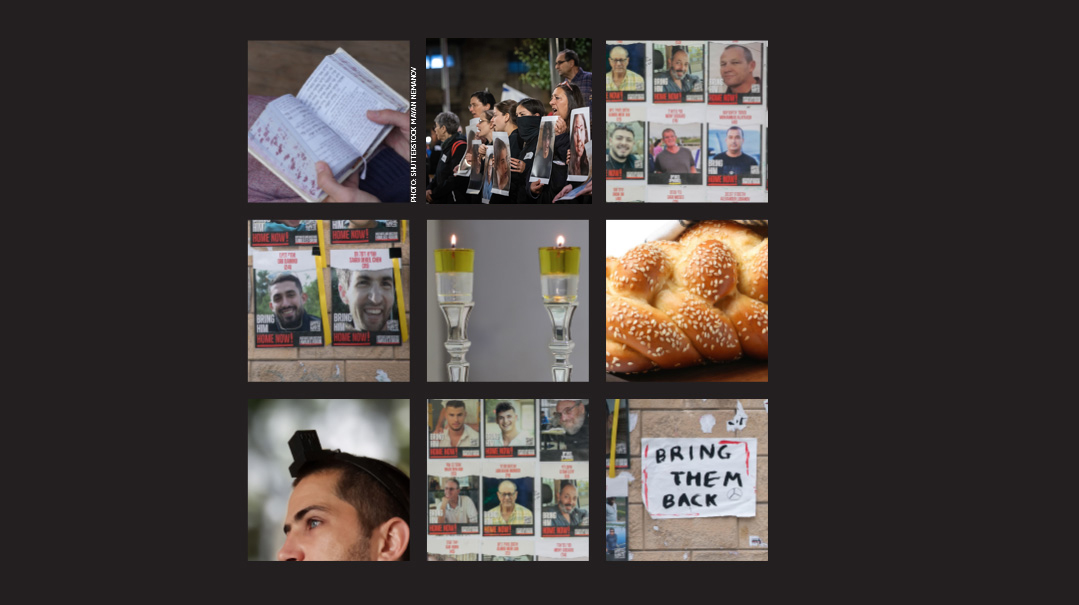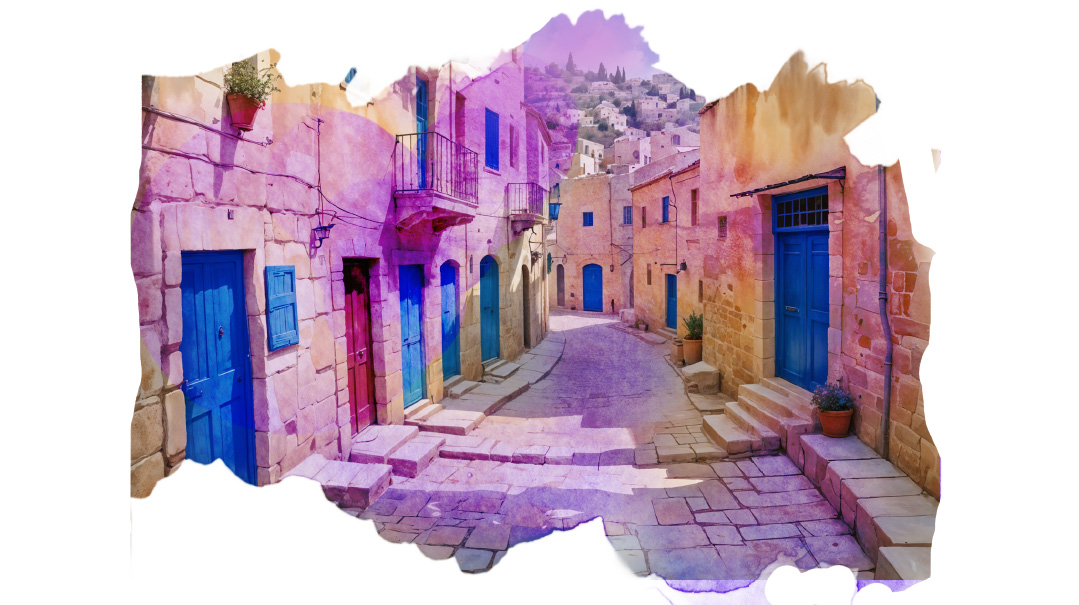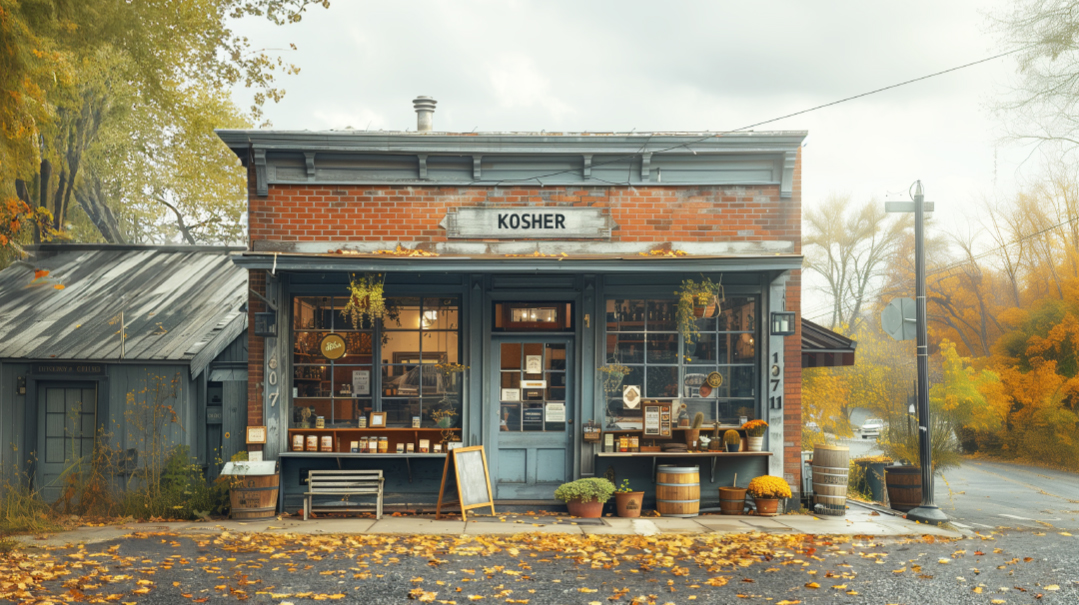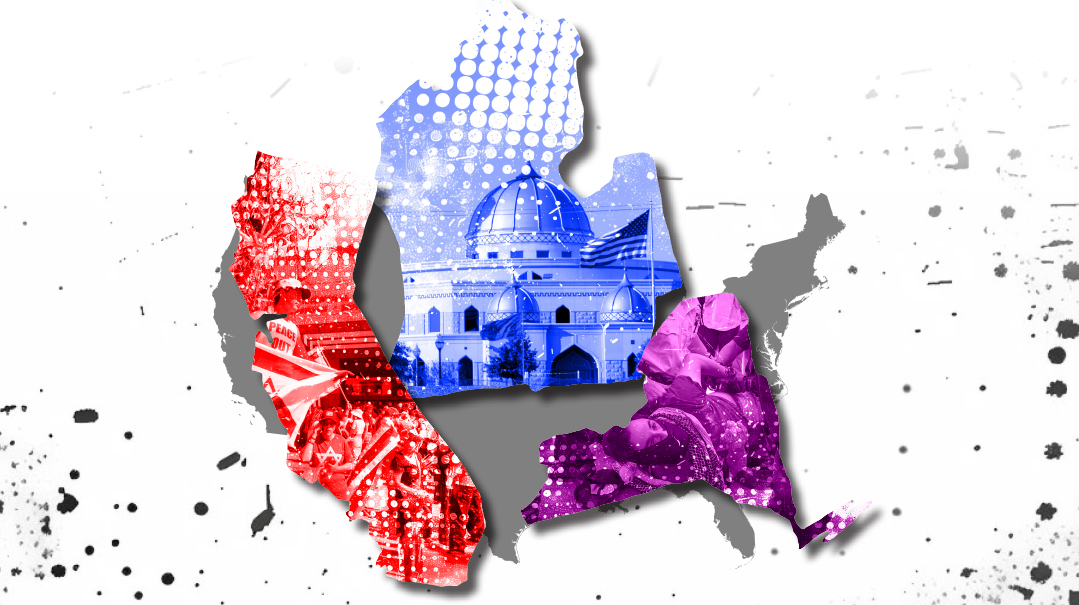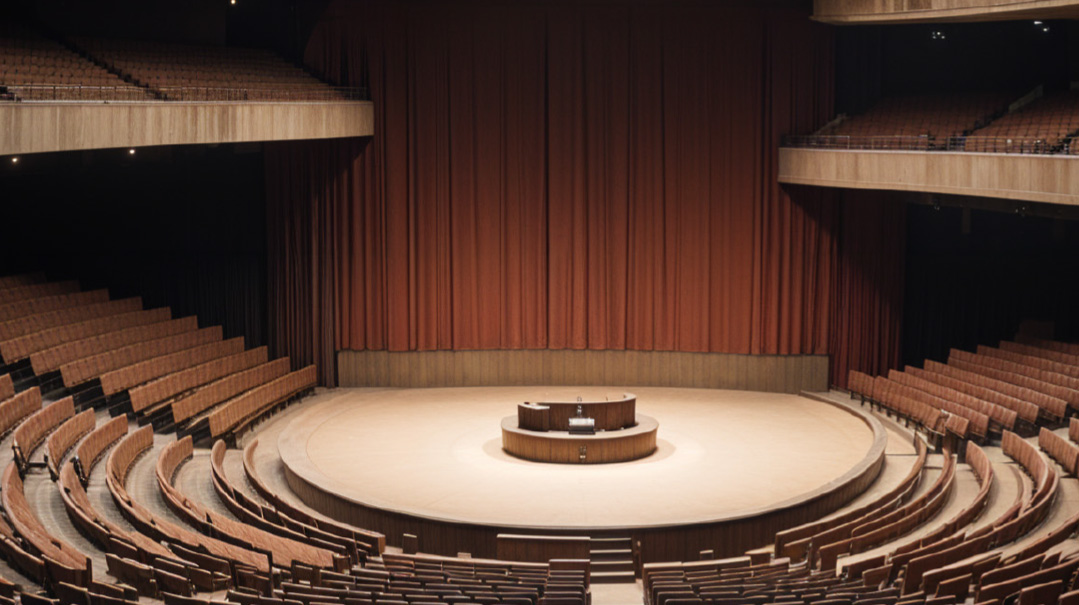A Mother’s Miracle

After her son was critically wounded in Gaza, Dina and her family were surrounded by support — and miracles
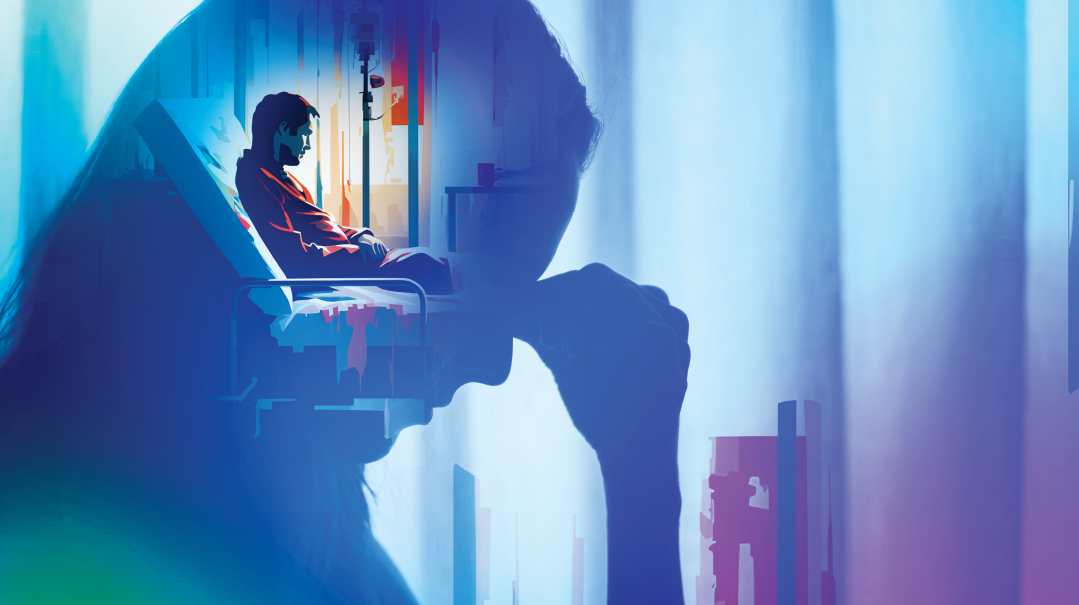
I
meet Dina at Hadassah Har Hatzofim’s rehabilitation center, where her son Aryeh, an officer in the Gefen Brigade, is recovering from injuries he sustained in Gaza on the first day of Chanukah. We sit together in Aryeh’s shared hospital room, currently empty — the soldiers have gone off for physical therapy — made less sterile by the colorful bunches of balloons, the packages of cookies from well-wishers, and the autographed “get well” posters festooning the walls.
“Sometimes a situation seems so bleak,” Dina says, “but what I’ve seen over the last month has shown me that everything that happens is meticulously directed by Hashem and that each of us has a significant role to play in the unfolding story of the Jewish people. I feel as though Hashem pulled back the curtain of confusion that drapes This World and gave me a glimpse of what lies behind.
“Everything I went through in my life helped prepare me to handle this nisayon,” Dina tells me. “Even small things, like the fact that in recent years my Hebrew improved significantly, which enabled me to communicate effectively with the medical staff, the army liaisons, the other soldiers, and parents in the ward.
“And there were bigger things. I’ve been in two major car accidents, which really shook me up. I’d felt I’d been living my life to the best of my ability, growing as an eved Hashem, and out of nowhere, I was driving along the road, and boom, a car plowed into mine — twice! But these events forced me to work on understanding the role nisyonos play in our life and to internalize the idea that challenges aren’t necessarily punishments, but a way to help us achieve more of our potential. These experiences did prepare me to better handle this nisayon of Aryeh’s injury.”
Aryeh was critically wounded when his abdomen was pierced by a large piece of shrapnel from an explosive device that detonated next to him and the soldiers he was in charge of. The details of the event are still under investigation, but it seems as though the group encountered a booby trap as they conducted a security scan of a school just outside of Jabaliya. The bomb killed another soldier, Lt. Netanel Menachem (Nati) Eitan, 22, from Ramot in Yerushalayim — who fought for his life for several days before succumbing to his wounds — and lightly injured a number of others.
Despite the severity of his injuries, Aryeh stayed conscious throughout, and in the initial chaotic minutes after he was wounded, was able to crawl to the side, away from the explosion site. There, he called out to his shocked soldiers, “I’m bleeding, I’m bleeding! Sit on me, sit on me!” Following his directive, his soldiers sat on him, applying pressure to the wound, until a medic was able to get to him and administer coagulants to stanch his massive hemorrhage. He was even able speak to Dina upon his arrival at the hospital to tell her he’d been injured and that she should come to Assuta Hospital as quickly as possible.
When Dina stepped out of the taxi and into the emergency room at Assuta hospital in Ashdod, she was embraced by a young chayelet, the army’s representative at the hospital, and told that when Aryeh arrived at the hospital he was already in hemorrhagic shock from blood loss and that the staff had literally sprinted the 150 meters from the helicopter landing pad to the emergency room with Aryeh’s stretcher. He was now in the operating theater, with doctors working to stabilize him, remove the shrapnel, and fix his damaged internal organs.
“Even though the piece of shrapnel that embedded itself in his abdomen was huge, it didn’t cause any long-lasting damage to his vital internal organs, which was a miracle,” Dina says.
“We had such a strong feeling of Hashem’s direct involvement in the whole event. One of the soldiers who was nearby the explosion knew his friend was on duty with the 669 rescue unit, and so he called him directly to order a helicopter, which expedited the evacuation process. Aryeh got to the hospital in record time. The explosion occurred at 12:07 p.m., and by 12:47 p.m., he’d already been loaded onto the helicopter and was on his way to Assuta, where he arrived seven minutes later.”
Dina shows me a photo of a port — turquoise water against an aqua sky; orange, red, and blue shipping containers stacked checkerboard style next to red-and-white striped cranes and enormous boats. “I took this photo from my hotel room near the hospital. Aryeh was taken to Ashdod, a city that has special meaning to us. During Covid, when schools and workplaces were shut down, Aryeh and I used to escape to a non-swimming beach in Ashdod, which was usually packed with retirees reading newspapers, and just sit there together. I’m also heavily involved in a nonprofit, Yad Leah, which imports quality second-hand clothing to Eretz Yisrael via the Ashdod port and distributes those clothes throughout Israel. Hashem placing us in Ashdod was another way I felt Him carrying us through it all.”
A few days after Aryeh was injured, one of Aryeh’s commanders came to visit him in the hospital and brought what remained of Aryeh’s uniform. “The only things that had remained intact were his siddur, yarmulke, and wallet, which was in his pocket under his siddur,” Dina recalls. The commander handed Aryeh those items and looked him in the eye. ‘You see,’ he said, ‘it was the siddur that carried you through this.’
“There were other incredibly moving moments, too,” Dina says. “When Aryeh recited the brachah asher yatzar for the first time after surgery — the words had so much meaning after we saw the gaping hole the shrapnel created. My husband kept telling our friends and relatives about the nekavim nekavim in Aryeh’s chalulim chalulim. I shared that with one of the chayalot who was supporting us. She’d never heard of the brachah before and couldn’t get over how applicable its words were to our situation. ‘Wow, it’s amazing,’ she told me. It was incredible to feel Hashem’s chesed in the miracle of the functioning of Aryeh’s body. Ein anu maspikim l’hodos lecha, Hashem.”
On the Wing of Prayer
Dina is poised throughout most of our interview, but there are a few moments when her eyes redden. Now is one of them.
“Through this whole war, I’ve seen how tefillah really moves worlds. When Aryeh was fighting for his life on Friday night after he was injured, the rav of our shul got up in front of the kehillah, and screamed at the top of his voice, ‘I’m forming a Beis Din Shel Matah and I’m asking the Beis Din shel Maalah to save the life of Aryeh Menachem Moshe ben Dina Tova!’ I really believe this played a huge role in helping Aryeh pull through.”
Dina pauses for a moment to collect herself. “My husband and I are both teachers in institutions for American post-high schoolers,” she continues, and I smile (because disclaimer: Dina is a mechaneches in the seminary I attended way back when, and I remember her well). “As soon as the war broke out on Simchas Torah and our current and former students heard we had a son in the army, we were inundated with requests for his name to daven for. I felt a bit guilty about it, because for many weeks, Aryeh wasn’t sent to Gaza, he was stationed in the yishuvim in the Gaza Envelope, searching for bodies of victims of the massacres, and while this was difficult work, it wasn’t as dangerous as being in Gaza.
“But then one day, Aryeh called. He’s a man, an officer in the army, not exactly the gushy or mushy type, but he said, ‘Mommy, you won’t believe the miracle that just happened.’
“He told me he was out with the soldiers under his command, combing the area for remains. They saw a rocket heading toward them, and at the last second before it landed, the Iron Dome intercepted it and instead of an explosion, smaller pieces of shrapnel rained down on them.
“As my husband says, the Iron Dome intercepted the missile with the thousands of perakim of Tehilim, dapei Gemara, and acts of chesed generated by the Jewish people all over the world. After that incident, I realized that we just don’t know where our tefillos go. We don’t know what zechuyos will be created and for whom, but they’ll do something for someone, somewhere.”
As soon as news of Aryeh’s injury spread, his family heard of an outpouring of initiatives, tefillos, and mitzvos performed on Aryeh’s behalf — performed by everyone from family to friends to complete strangers. “From little cheder boys in Yerushalayim who learned hundreds of mishnayos in his zechus, to the Rosh Yeshivah, who is learning 11 more dapim each day, to Modern Orthodox high schoolers in America, Aryeh’s story has caused a thunderstorm of prayers and limud haTorah,” Dina says. “And before our very eyes, we saw these zechuyos make a substantial difference in expediting his recovery.
“I believe we need to capitalize on this experience and keep davening with all our koach for the soldiers and the hostages to come home safely. Not just to say the words, but to imagine that they’re our family members, that we care about them and are worried about them as if they were our children, our spouses, our siblings, our parents. To feel their terror and horror and anxiety, to imagine what they and their families are enduring, and to allow that to generate tremendous kavanah and heartfelt tefillos. It’s very scary and difficult to feel those terrible feelings, but I believe that’s the only way we can really beg, beg Hashem for a global yeshuah. We need to ‘own’ the tzarah of the situation on a certain level, make it ours, very much like what people did with Aryeh.”
One Family
Looking back, Dina says, the one message that stands out from these difficult days: We are all one. “Even though we all look so different and live such different existences, have different backgrounds, beliefs, cultures, and language, Klal Yisrael is really one big family. During this past year in Israel, there has been so much pilug, so much in-fighting, but, really, we’re all brothers and sisters.”
Throughout Aryeh’s hospital stay, this is the mantra that Dina kept hearing and repeating to everyone, from the medical staff to army commanders.
“After the surgeon operated on Aryeh for six hours, she came out of the operating theater to talk to me,” Dina recalls. “She said, ‘Dina, I operated on him as if he was my own child.”
Dina initially came to the hospital alone. “When Aryeh first called us to tell us he was injured, we didn’t realize how dangerous his situation was,” she shares. “Since it was three hours to Shabbos, we thought it would be best if my husband stayed home with the rest of the children and only I went to the hospital.
“On Friday night, another couple, completely secular Israelis who also had a son in intensive care, came and sat with me so that I wouldn’t be alone during the crisis. A dati-leumi family ‘adopted me,’ and I ate the Shabbos seudos with them as if I was one of their relatives.
“Later that night, there were two secular women who came over to me and insisted that it was a pikuach nefesh situation, and there must be a rabbi who would allow me to travel to their house and sleep there so that I’d have the koach to support my son. Of course, there’s no heter to do that, so I spent the night on a mattress on the floor in the intensive care waiting room. In the morning, as I was davening Shacharis, I noticed a bareheaded man sitting on a chair nearby. When I finished, he introduced himself. ‘I have a son who was in intensive care, now he’s in a ward upstairs. I heard you’re here by yourself, so I came to sit with you so you won’t be alone.’
“Ezer Mizion volunteers provided us with everything I needed for Shabbos in the hospital and with warm drinks and meals throughout our stay in Assuta.”
I nod in recognition. As I’d been waiting in the lobby for Dina, two lovely middle-aged ladies pushing an Ezer Mizion cart filled with sandwiches, Styrofoam cups, and juice and iced-tea bottles had asked me (with proper British accents) if they could make me a coffee or get me something to eat.
“A mother of a soldier in Aryeh’s unit whom I had never met came every day to bring Aryeh home-cooked meals to his liking,” Dina continues. “She and her family became like family to us. We felt constantly enveloped in ahavas chinam in the hallways of the hospital. That support and the outpouring of chesed from our community has also helped us get through.”
Indeed, as we sit and speak, we’re constantly interrupted by people popping into the room to ask after Aryeh. At one point, a smiling Lubavitcher with a big beard and an even bigger smile comes in with a plastic shopping bag. “I came all the way from Argentina to cheer up wounded soldiers,” he tells Dina. “And I brought cookies. Please give this to your son.” He pulls out a shiny foil-wrapped package from his plastic bag, and showers Dina with brachos for a refuah sheleimah for her son. It’s heartwarming and heartbreaking all at the same time.
“I was the only chareidi-looking person in Assuta, and many people were surprised to see a soldier’s mother wearing a sheitel and tzniyus clothing. The only other chareidim they’d ever met were Chabad, and they couldn’t believe I wasn’t. The different sectors of Israeli society are so segregated, and after everything that has happened, I feel that creating achdus among us all needs to be a priority for us all at this time.
“We’re often machmir in high levels when it comes to mitzvos bein adam l’Makom — the mehudar esrog, chadash, yashan, chalav Yisrael, etc. Do we channel some of that hiddur in our shemiras mitzvos bein adam l’chaveiro? Do we consider it lashon hara to talk about people with different frumkeit standards from ours, or do we rationalize in our minds that they don’t count? Can we take the same bren that we use to make a beautiful Shabbos seudah and keep the highest standards of kashrus and use it to go out there in the proper halachic manner to love other Jews indiscriminately? The Gemara in Maseches Yoma teaches that just as we have a mitzvah to love Hashem, we have a mitzvah to make Him beloved through our actions and behavior.
“I want people to close their eyes, to listen to the sweetness in other people’s voices, without judgment. See the good in them, see the commonalities, not the differences between us. Through that, Hashem will be beloved to them and you’ll make a kiddush Hashem.
“We need to learn how to balance our values and our priorities with appropriately reaching out to our brothers and sisters who are different from us — to show genuine love, to create positive feelings between different segments of society,” Dina says with passion. “And if we don’t know how, let’s learn!”
Heroes, All of Them
When you spend day after day in the confines of the intensive care ward, you form close bonds with the other patients and their families.
“I still keep up with the other soldiers’ mothers, even though we’ve, baruch Hashem, left the hospital and are in rehab, and we send messages asking after each other’s children: How’s Yoav, how’s Idan, how’s Aryeh? I was just overwhelmed by the strength and bedrock emunah of these injured soldiers and their families. All these soldiers, many of them so young, in their late teens and early twenties, risking their lives with so much willingness to do the holy work of being Hashem’s shlichim to protect Am Yisrael. And some of them have life-changing injuries. Yet I didn’t hear or see anger or resentment or bitterness in them. Just strength and determination and genuine love of our Land and our People.”
Dina shows me a video clip from the bombed-out shell of a house in Gaza where Aryeh’s unit had set up camp. “This was taken on the first night of Chanukah, the evening before they were injured,” she says. I choke up as I watch it. The house is darkened, the soldiers have their arms around one another as one of them, one of the few wearing a kippah, recites the brachos and lights the candles, and they all burst into a joyous rendition of Haneiros Halalu and Maoz Tzur. The tiny flickering flames from the menorah and the passionate singing remind me of the the pintele Yid inside all of us, sometimes smoldering, sometimes dancing strongly, but always lit.
Dina is also emotional. “The soldier lighting the candles? That’s Nati, who was killed the next day. Aryeh told me he was an exceptional person. They’d only met in Gaza, but they connected straight away, and Aryeh was very impressed with him. His death was very, very hard for Aryeh. He was a baal chesed, a regular volunteer for Zichron Menachem. He was in a serious relationship and about to get engaged.”
There’s something so powerful about watching a video of someone performing one of their last mitzvos in This World, and I feel very shaken up. And Dina has even more stories of strength to share.
“There was one woman whose son was in the bed next to ours. She came over to me that first Shabbos, closed her phone, and said to me, ‘Dina, I see you need to strengthen your emunah.’”
“This woman’s son had lost one of his legs; most of the soldiers in the hospital had lost limbs or were disfigured from their injuries. Aryeh’s wounds were baruch Hashem limited to his abdomen, and it’s hopeful that, with Hashem’s help, he’ll make a complete recovery.
“The first time Aryeh was able to get up and, with the encouragement of the nursing staff, walk from his bed to the other side of the room, I saw the ‘neighboring’ mother looking over. I couldn’t bear to think she was watching us, while knowing that her son would never be able to stand on his own two feet again,” Dina recalls.
“When I told her that, she dismissed my concerns. ‘Dina,’ she said, ‘the only thing that matters is that my son Idan is alive. He was listed as dead. I lost a brother in Tzuk Eitan, in the war with Gaza in 2014. Idan is alive, and because of this experience, he’s going to be a better person, one day a better husband, a better father. He’s only going to be stronger because of what he’s going through.’
“I saw her parents, who had buried their own soldier son, and were now seeing their grandson so badly injured. But they were so strong and so supportive and caring of us, of Aryeh. We’re talking about giants.”
A Mother’s Love
I’m on the highway outside Beit Shemesh when Dina leaves me a message with some additional points she’d forgotten to mention when we’d met. “Another thing I felt so strongly was how important a mother’s love is for a child, no matter how old that child is,” she says. “There’s this funny dichotomy with soldiers, especially wounded soldiers. On the one hand they’re heroic men who sacrificed themselves to save others, and on the other hand, they’re in physical pain from their injuries, and in emotional pain from the trauma of losing comrades, of being injured so badly, and they need love and support and for you to be there for them.
“As most women in our generation can tell you, we’re torn between our many roles: wife, mother, employee, daughter, friend, community member, etc. But when Aryeh called me to tell me he was injured, there was none of that tension. I felt so clearly that now my role was to be exclusively a mother.
“When he woke up after his surgery, Aryeh was very confused because of all the strong pain medication he’d been given. I saw him looking around, agitated and suspicious. I kept on saying to him, ‘Aryeh, it’s okay, it’s Mommy. Everything’s okay. Aryeh, it’s Mommy.’ And then I saw relief pass over his face, and he whispered, ‘Mommy, you’re here? I didn’t get kidnapped? I’m not in Gaza?’ It was very a powerful moment showing me just how important a mother’s presence is.”
Dina and her family would like to express tremendous gratitude to the thousands of men, women, and children who have davened for the recovery of Aryeh Menachem Moshe ben Dina Tova, and for the outpouring of chesed they’ve received.
(Originally featured in Family First, Issue 877)
Oops! We could not locate your form.

